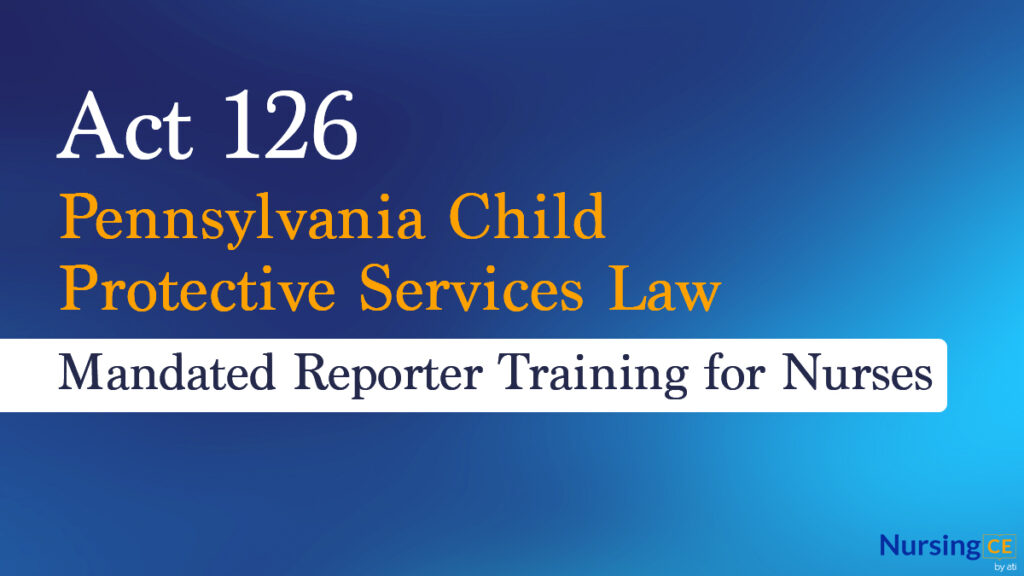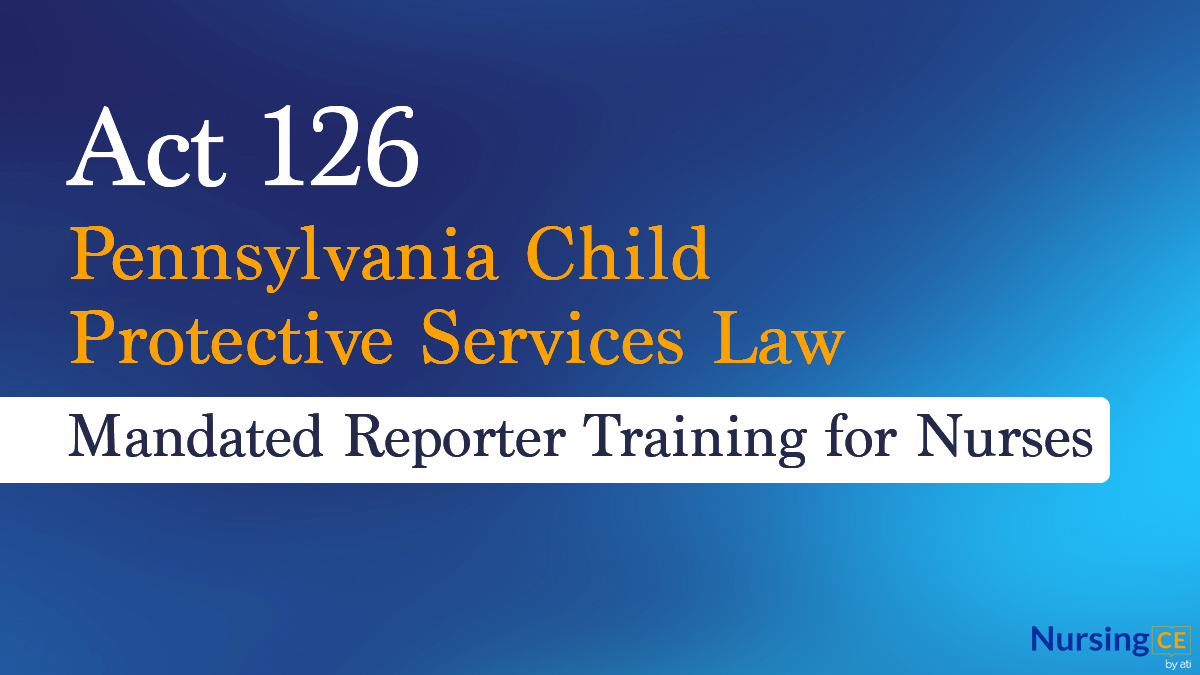
How Long Does a Mandated Reporter Certificate Last? Understanding Requirements and Renewal
Becoming a mandated reporter is a crucial step for individuals in professions that interact with vulnerable populations. These individuals, including teachers, healthcare providers, and social workers, are legally obligated to report suspected cases of child abuse or neglect. Obtaining a mandated reporter certificate signifies completion of the necessary training to fulfill this responsibility. A common question that arises is: how long does a mandated reporter certificate last? This article will delve into the validity periods of these certificates, renewal requirements, and the importance of staying up-to-date with mandated reporting laws and best practices. Understanding how long a mandated reporter certificate lasts is essential for maintaining compliance and ensuring the safety of vulnerable individuals.
Understanding Mandated Reporter Requirements
Before addressing the duration of a mandated reporter certificate, it’s important to understand the core requirements of being a mandated reporter. Mandated reporters are individuals who, due to their professional role, are legally required to report suspected instances of child abuse, neglect, or endangerment to the appropriate authorities. These laws are in place to protect vulnerable populations, particularly children, from harm. The specific definition of a mandated reporter and the types of abuse or neglect that must be reported can vary slightly depending on the state or jurisdiction. However, the underlying principle remains consistent: to ensure the safety and well-being of those who may be unable to protect themselves.
Mandated reporting laws typically outline:
- Who is a mandated reporter: Specific professions or roles that carry the legal obligation to report.
- What must be reported: The types of abuse, neglect, or endangerment that trigger the reporting requirement.
- How to report: The process for making a report, including the contact information for the appropriate authorities (e.g., child protective services).
- Protections for reporters: Legal protections for mandated reporters who make reports in good faith, even if the allegations are later unsubstantiated.
Understanding these requirements is crucial for anyone who falls under the definition of a mandated reporter. Failure to report suspected abuse or neglect can result in legal penalties, including fines or even criminal charges. Furthermore, and more importantly, it can put vulnerable individuals at risk of further harm.
The Validity Period of a Mandated Reporter Certificate
The answer to the question, “How long does a mandated reporter certificate last?” isn’t always straightforward. The validity period of a mandated reporter certificate varies significantly depending on the state, the specific training program, and the employer’s policies. Some states may not have a specific expiration date for mandated reporter training, while others may require periodic renewal or refresher courses. It is important to check the specific regulations in your state or jurisdiction.
Here are some common scenarios regarding the validity of mandated reporter certificates:
- No Expiration Date: In some states, once you complete the mandated reporter training and receive your certificate, it may not have a formal expiration date. However, even in these cases, it’s essential to stay informed about any changes in the law or best practices.
- Fixed Expiration Date: Other states or organizations may require renewal of the certificate every few years (e.g., every two, three, or five years). This ensures that mandated reporters receive updated information on reporting procedures, changes in legislation, and emerging issues related to child abuse and neglect.
- Employer-Specific Requirements: Some employers may have their own policies regarding the frequency of mandated reporter training, even if the state doesn’t have a specific requirement. For example, a school district might require all employees to complete mandated reporter training every year, regardless of whether the state mandates it.
Therefore, it is always essential to verify the specific requirements of your state, employer, and the training program itself. If you are unsure, contact your state’s Department of Social Services, your employer’s HR department, or the organization that provided the training.
Why Renewal and Refresher Courses Are Important
Even if your mandated reporter certificate doesn’t have a formal expiration date, it’s highly recommended to participate in regular refresher courses or continuing education opportunities. Mandated reporting laws and best practices are constantly evolving, and staying up-to-date is crucial for effectively fulfilling your responsibilities as a mandated reporter. Several reasons highlight the importance of renewal and refresher courses:
- Changes in Legislation: Mandated reporting laws can change over time, including revisions to the definition of abuse or neglect, modifications to reporting procedures, or updates to the list of mandated reporters. Refresher courses ensure that you are aware of these changes and can comply with the current legal requirements.
- Evolving Best Practices: Our understanding of child abuse and neglect is constantly evolving, as are the best practices for prevention, identification, and reporting. Refresher courses can provide you with the latest information on these topics, helping you to better protect vulnerable individuals.
- Increased Awareness: Regular training can help to reinforce your understanding of mandated reporting requirements and increase your awareness of the signs and symptoms of abuse and neglect. This can make you more likely to recognize and report potential cases of harm.
- Legal Protection: Participating in regular training can demonstrate your commitment to fulfilling your responsibilities as a mandated reporter, which can provide you with additional legal protection if you ever face scrutiny for your reporting decisions.
By staying informed and participating in ongoing training, you can ensure that you are equipped to effectively protect vulnerable individuals and comply with the law. You can find various online and in-person training programs to renew your knowledge and skills. [See also: State-Specific Mandated Reporting Laws]
Checking the Specific Requirements in Your State
Given the variability in mandated reporter certificate validity periods, it’s crucial to determine the specific requirements in your state or jurisdiction. Here’s how to find this information:
- State Department of Social Services (DSS): Your state’s DSS is the primary agency responsible for child protective services and mandated reporting. Their website should provide information on mandated reporting laws, training requirements, and certificate validity.
- State Attorney General’s Office: The Attorney General’s office may also have resources on mandated reporting, including legal interpretations and training materials.
- Professional Licensing Boards: If you are a licensed professional (e.g., teacher, healthcare provider, social worker), your licensing board may have specific requirements for mandated reporter training and certificate renewal.
- Employer’s HR Department: Your employer should be able to provide you with information on their policies regarding mandated reporter training and the validity of certificates.
- Mandated Reporter Training Providers: The organization that provided your mandated reporter training should be able to tell you whether your certificate has an expiration date and how to renew it.
By consulting these resources, you can ensure that you have the most accurate and up-to-date information on the validity of your mandated reporter certificate and the requirements for renewal.
Consequences of Not Renewing or Staying Updated
Failing to renew your mandated reporter certificate or stay updated on mandated reporting laws and best practices can have serious consequences, both legally and ethically. These consequences can include:
- Legal Penalties: In some states, failure to report suspected abuse or neglect can result in fines, criminal charges, or loss of professional licensure. While the specific penalties vary depending on the jurisdiction, they can be significant.
- Civil Liability: You could also be held liable in civil court if your failure to report results in harm to a vulnerable individual. For example, if you knew or should have known about abuse and failed to report it, you could be sued for negligence.
- Ethical Violations: As a mandated reporter, you have an ethical obligation to protect vulnerable individuals from harm. Failing to report suspected abuse or neglect can be a serious breach of ethics, which can damage your reputation and career.
- Increased Risk to Vulnerable Individuals: The most serious consequence of not staying updated is the increased risk to vulnerable individuals. By failing to recognize and report suspected abuse or neglect, you could be allowing harm to continue, potentially with devastating consequences.
Therefore, it’s essential to prioritize staying informed and maintaining a valid mandated reporter certificate.
Tips for Staying Up-to-Date on Mandated Reporting
Here are some practical tips for staying up-to-date on mandated reporting requirements and best practices:
- Set Reminders: If your mandated reporter certificate has an expiration date, set reminders in your calendar to renew it well in advance of the deadline.
- Subscribe to Updates: Subscribe to email newsletters or alerts from your state’s DSS, professional licensing board, or mandated reporter training providers. These updates can keep you informed of any changes in the law or best practices.
- Attend Conferences or Workshops: Attend conferences or workshops on child abuse prevention or mandated reporting. These events can provide you with valuable information and networking opportunities.
- Read Relevant Publications: Read journals, articles, or books on child abuse and neglect. This can help you stay informed about emerging issues and best practices.
- Discuss Cases with Colleagues: If you are unsure about whether to report a particular situation, discuss it with your colleagues or supervisor. They may be able to provide you with guidance and support.
Conclusion
The question of how long does a mandated reporter certificate last highlights the importance of ongoing education and awareness in protecting vulnerable populations. While the validity period of a mandated reporter certificate can vary, the underlying principle remains the same: mandated reporters have a legal and ethical obligation to report suspected abuse or neglect. Whether your certificate has a fixed expiration date or not, it’s crucial to stay informed about changes in the law, evolving best practices, and emerging issues related to child abuse and neglect. By prioritizing ongoing training and staying up-to-date, you can ensure that you are equipped to effectively fulfill your responsibilities as a mandated reporter and protect vulnerable individuals from harm. Understanding how long a mandated reporter certificate lasts is only the first step; continuous learning and vigilance are essential for making a real difference in the lives of those who need it most. Remember to always check the specific requirements in your state and with your employer to ensure compliance. [See also: Reporting Child Abuse: A Guide for Mandated Reporters]

